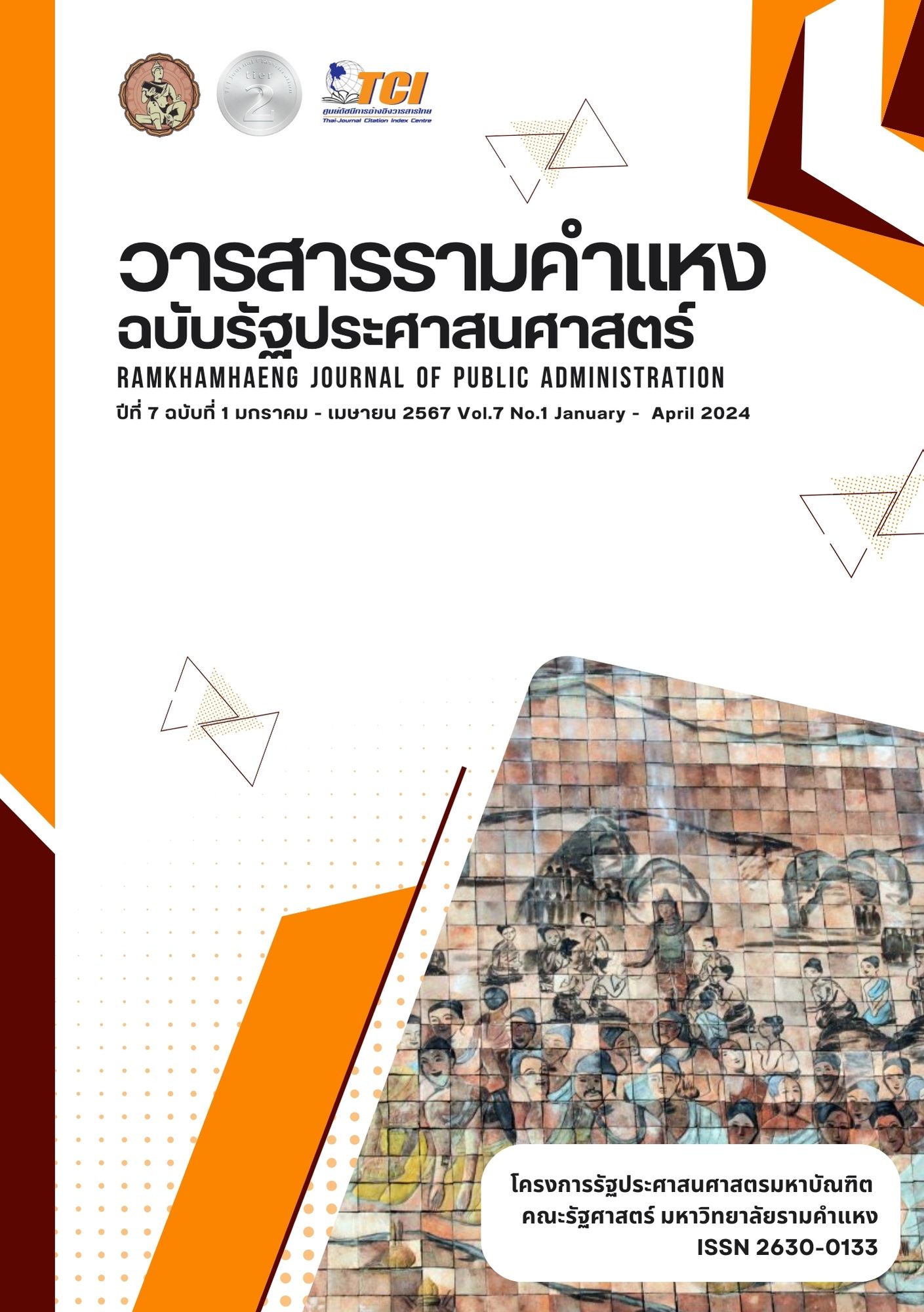Ethical Governance in the Next Decade: Key Attributes for Effective Political Leadership
Keywords:
honesty, political leadership, public desire, transparency, visionAbstract
This academic article primarily aims to identify the characteristics of political leadership that the public desires, particularly those long-valued leadership qualities in various cultural, social, and political contexts, such as honesty, transparency, experience, vision, communication skills, empathy, and ethical behavior. This article synthesizes research findings from diverse contexts and discovers that the essential characteristics of political leaders desired by the public include honesty, transparency, accountability, experience, knowledge, vision, strategy, empathy, compassion, and ethical conduct. Therefore, this study plays a significant role in providing guidelines for application in political leadership training processes, political party candidate selection, accountability measures, and political decision-making, which ultimately leads to governance that is ethical and transparent. Additionally, the analysis contributes to presenting an integrated framework and motivates further research to support the understanding of the impacts of political leadership, public perception, and overall leadership effectiveness. Although the aforementioned qualities are acknowledged as desirable by the public, additional empirical research is crucial for assessing ways to instill these qualities in each social and cultural context.
References
Bandura, A. (2016). Moral disengagement: How people do harm and live with themselves. Worth Publishers.
Bennister, M., & 't Hart, P. (2015a). Political leadership: A pragmatic institutionalist approach. Political Studies, 63(3), 719-735.
Bennister, M., & 't Hart, P. (2015b). Studying political leadership: Foundations and contending accounts. Palgrave Macmillan.
Besley, T. (2019). Political selection, values, and the voter. Journal of Economic Perspectives, 33(3), 115-134.
Boin, A., 't Hart, P., Stern, E., & Sundelius, B. (2017). The politics of crisis management: Public leadership under pressure. Cambridge University Press.
Bovens, M. (2017). Analysing and assessing accountability: A conceptual framework. European Law Journal, 13(4), 447-468.
Burns, J. M. (2018). Leadership. Open Road Media.
Cialdini, R. B. (2016). Pre-suasion: A revolutionary way to influence and persuade. Simon & Schuster.
Cross, R., & Peake, J. (2022). Presidential leadership and African Americans: "Going public" on behalf of minority rights. Political Research Quarterly, 68(2), 287-299.
Druckman, D. (2013). Negotiations and conflict resolution: A theoretical perspective. In The Oxford Handbook of Political Psychology.
Evans, G. (2016). Leadership in public organizations: An introduction. Routledge.
Fischer, F., Miller, G. J., & Sidney, M. S. (Eds.). (2015). Handbook of public policy analysis: Theory, politics, and methods. CRC Press.
Grimmelikhuijsen, S., Porumbescu, G., Hong, B., & Im, T. (2022). The effect of transparency on trust in government: A cross-national comparative experiment. Public Administration Review, 82(1), 126-135.
Hickman, G. R. (2014). Leading organizations: Perspectives for a new era. Sage Publications.
Hudson, V. M. (2017). The history and evolution of foreign policy analysis. Oxford University Press.
Jackson, B., & Parry, K. (2019). A very short, fairly interesting and reasonably cheap book about studying leadership. Sage Publications.
Kingdon, J. W. (2014). Agendas, alternatives, and public policies (Vol. 45). Pearson Higher Ed.
Kissinger, H.A., Schmidt, E., & Huttenlocher, D. (2021). The age of AI: And our human future. Little, Brown and Company.
Lawton, A., et al. (2023). Ethics in public policy and management: A global research companion. Routledge.
Malone, H., & Ntziadima, A. (2022). Learning from crisis: The experience of the London Olympics. Journal of Contingencies and Crisis Management, 20(4), 230-241.
Mansbridge, J. (2018). In a system of representative government, who should represent? Daedalus, 147(2), 15-32.
Marcus, G. E. (2019). The sentimentalist theory of democracy. Cambridge University Press.
McAdam, D. (2019). Political process and the development of Black insurgency, 1930-1970. University of Chicago Press.
Moynihan, D. P. (2019). Who's to blame? Attribution of responsibility in crisis response. The Oxford Handbook of Public Accountability.
Mintrom, M. (2020). Policy entrepreneurs and dynamic change. Cambridge University Press.
Moore, C. (2020). Moral disengagement. Current Opinion in Psychology, 6, 199-204.
Nye, J.S. (2021). Do morals matter? Presidents and foreign policy from FDR to Trump. Oxford University Press.
Patterson, T. E. (2014). Informing the news: The need for knowledge-based journalism. Vintage.
Rhode, D. L. (2021). Women and leadership. Oxford University Press.
Rudolph, T. J., & Evans, J. (2017). Political trust, ideology, and public support for government spending. American Journal of Political Science, 61(3), 574-589.
Schillemans, T. (2018). Accountability in the shadow of information? Utrecht University.
Schwab, K. (2017). The fourth industrial revolution. Crown Business.
Simons, T. (2014). Behavioral integrity: The perceived alignment between managers' words and deeds as a research focus. Organization Science, 13(1), 18-35.
Stoker, G., & Rawlings, M. (2021). The digitization of public participation: An investigation into the use of social media in local government. Governance, 34(2), 321-336.
Downloads
Published
How to Cite
License
Copyright (c) 2024 Waiphot Kulachai, Duangruedee Eaosinsup

This work is licensed under a Creative Commons Attribution-NonCommercial-NoDerivatives 4.0 International License.



